🎬 Pulp Fiction (1994)
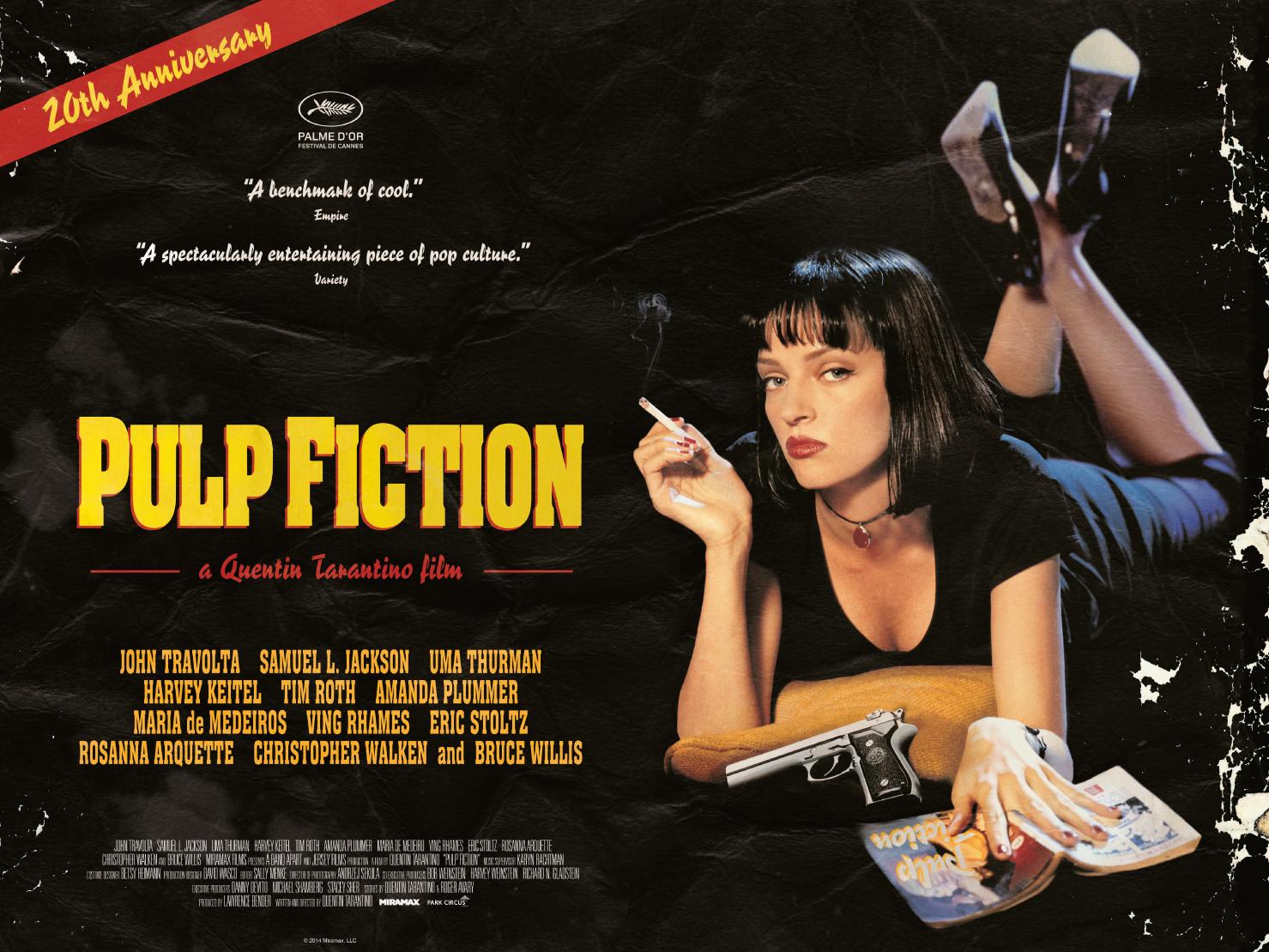
🎬 Pulp Fiction (1994): A Nonlinear Masterpiece of Crime and Chaos
Pulp Fiction, directed by Quentin Tarantino, is a groundbreaking film that reshaped the landscape of independent cinema and became a cultural phenomenon. Known for its innovative nonlinear narrative structure, sharp dialogue, and unforgettable characters, the film intertwines multiple storylines involving hitmen, gangsters, and the intertwined lives of various characters in Los Angeles. 🕵️♂️🔫
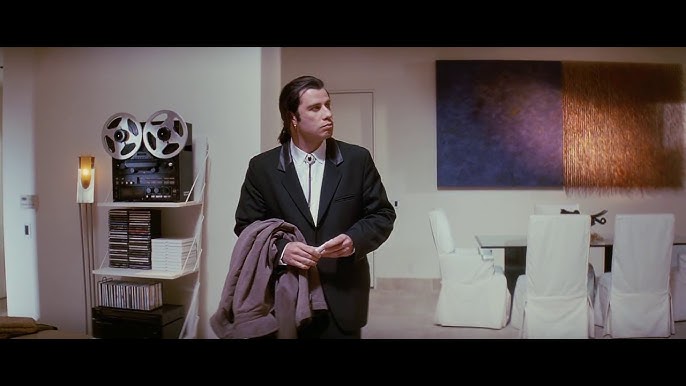
The film opens with the iconic duo of hitmen Vincent Vega (John Travolta) and Jules Winnfield (Samuel L. Jackson) on their way to retrieve a briefcase for their boss, gangster Marsellus Wallace (Ving Rhames). Their philosophical discussions on life and morality, punctuated by pop culture references, set the tone for the film’s unique blend of humor and violence. The duo’s banter and Jules’ moment of revelation elevate their roles beyond mere criminals, showcasing the complexity of their characters. 🍔💭
One of the film’s standout segments revolves around Vincent’s date with Mia Wallace (Uma Thurman), Marsellus’ wife. Their evening together, filled with playful tension and iconic moments—such as the twist contest at Jack Rabbit Slim’s diner—explores themes of desire and danger. This storyline culminates in a near-fatal overdose, which leads to a frantic attempt at saving Mia, adding a layer of suspense and urgency to the narrative. 💃🕺
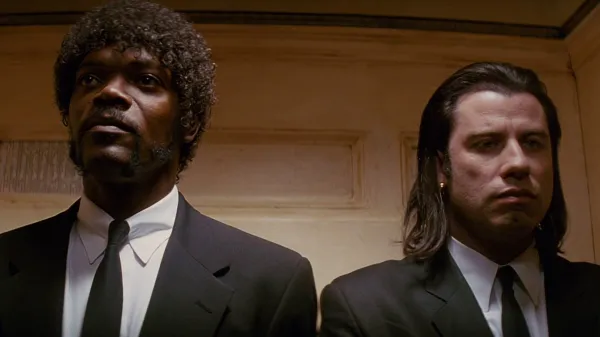
Tarantino’s storytelling shines through in the segment featuring boxer Butch Coolidge (Bruce Willis), who is coerced into throwing a fight by Marsellus. Butch’s decision to double-cross his boss leads to a chain of events filled with dark humor and unexpected twists. The film masterfully portrays the consequences of choices made in desperation, encapsulated in the intense final showdown between Butch and Marsellus in a pawn shop, where they face a common enemy and ultimately confront their own fears. 🥊💥
Another significant narrative thread is the intertwining stories of the “Bonnie Situation,” which follows Vincent and Jules as they attempt to dispose of a body after a botched hit. This segment exemplifies the film’s dark comedic tone, as the two navigate the absurdities of their situation while simultaneously showcasing their moral dilemmas. The climax of this storyline culminates in a dramatic confrontation with a couple who unwittingly become embroiled in their chaos, highlighting the film’s theme of unintended consequences. 🔪🚗
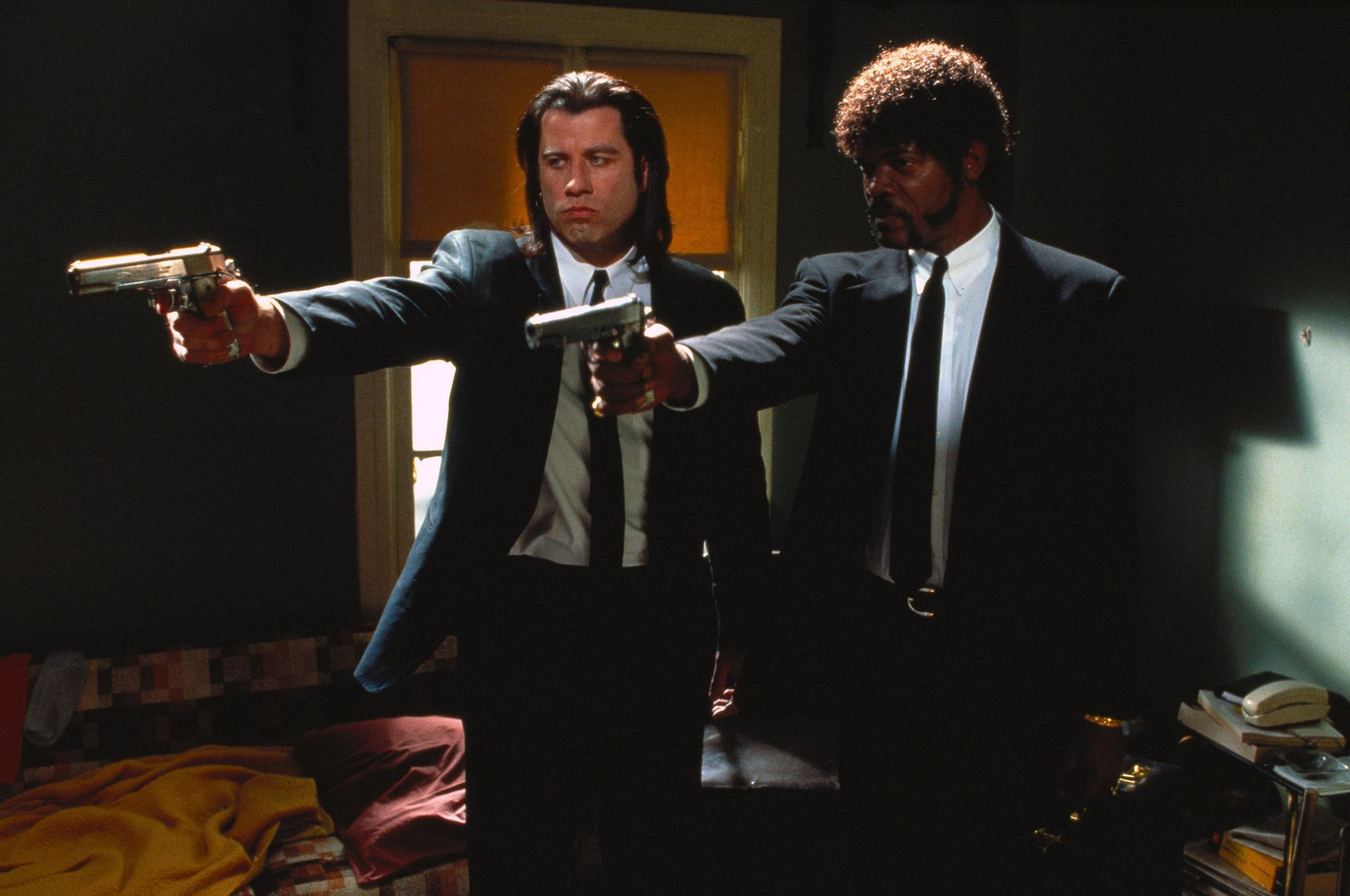
Pulp Fiction is celebrated not only for its engaging storytelling but also for its rich, eclectic soundtrack that complements the film’s tone. The carefully curated selection of songs enhances the narrative, creating an atmosphere that is both nostalgic and energetic. Tarantino’s unique style—characterized by witty dialogue, unexpected violence, and cultural references—has influenced countless filmmakers and continues to resonate within popular culture. 🎶🎤
The film’s impact on cinema is profound; it won the Palme d’Or at the Cannes Film Festival and earned several Academy Award nominations, including Best Picture and Best Original Screenplay, which it ultimately won. Pulp Fiction is often regarded as a landmark film that revived interest in independent filmmaking, demonstrating that a unique voice and vision could thrive in Hollywood. 🌟🏆
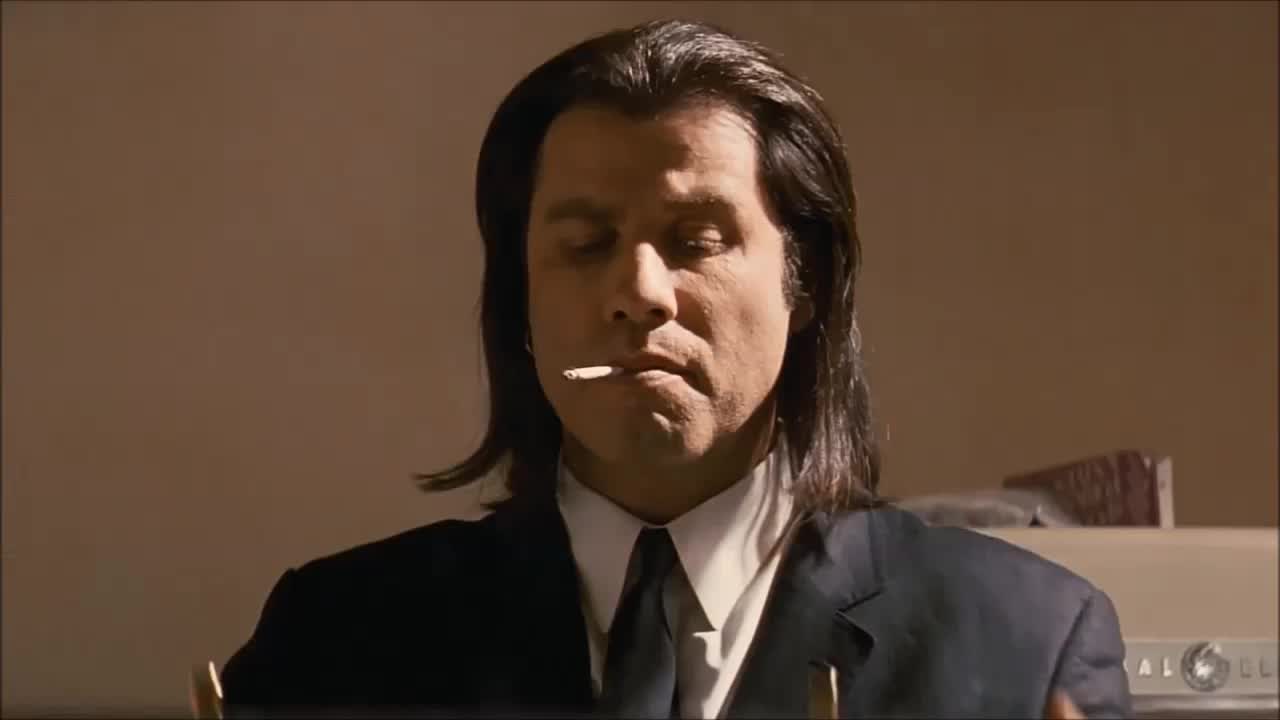
In conclusion, Pulp Fiction is a daring and innovative work that defies traditional storytelling conventions, weaving together multiple narratives that explore themes of crime, morality, and the human experience. With its unforgettable characters, sharp dialogue, and striking visual style, it stands as a testament to Quentin Tarantino’s genius and remains a beloved classic that continues to captivate audiences worldwide. Its legacy endures as one of the greatest films of all time, reflecting the chaotic beauty of life through the lens of crime and consequence. 🎥🖤











